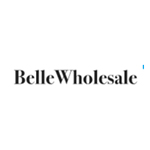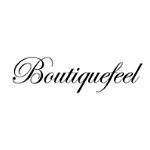Beauty
Best Face Oils for Sensitive Skin

Best Face Oils for Sensitive Skin
Let’s take a look some of the Best Face Oils for Sensitive Skin :
Introduction:
Exploring the world of facial oils can be a game-changer for those with sensitive skin. These natural wonders, derived from plant-based ingredients, offer pure care from nature, containing essential vitamins and healthy fatty acids. In this guide, we’ll delve into the benefits of facial oils, understanding their compatibility with sensitive skin, and discovering the diverse uses of ten recommended oils.
Understanding Sensitive Skin:
Sensitive skin is not confined to a specific type; it can manifest in both dry and oily skin types. Common symptoms include a feeling of tension, itching, redness, or scaly areas.
These signs often indicate damage to the skin’s protective layer, known as the hydrolipid layer, responsible for preserving moisture and preventing external influences.
Sensitive skin may react adversely to cosmetic products, with the potential for allergic reactions to artificial ingredients like emulsifiers, preservatives, or fragrances.
Choosing Natural Facial Oils for Sensitive Skin:
Natural facial oils are renowned for their gentle care, well-tolerated by sensitive or stressed skin. Before using any oil, it is advisable to conduct a patch test to ensure compatibility. Testing a small amount on the inner arm allows for a quick assessment of potential skin reactions.
The following facial oils are recommended for their soothing properties, helping to alleviate irritation, smooth rough patches, and reduce redness in sensitive skin.
Borage Oil:
Known for calming inflammation and itching, borage oil aids in retaining skin moisture. Its high linoleic acid content is absorbed quickly and supports the skin’s hydrolipid layer.
Calendula or Marigold Oil:
Used in herbal medicine for wound healing, calendula oil gently cares for sensitive skin, offering a natural remedy for irritation.
Hemp Oil:
Rich in omega-3 and omega-6 fatty acids, hemp oil reduces skin inflammation, making it beneficial for sensitive skin prone to irritation.
Evening Primrose Oil:
Similar to borage oil, evening primrose oil soothes and promotes healing processes in irritated skin. Its linoleic acids contribute to moisture regulation.
Versatile Uses of Facial Oils for Different Skin Types:
Apart from catering to sensitive skin, facial oils cater to various skin types with specific needs. Let’s explore recommended oils for dry, mature, and oily or combination skin.
Facial Oils for Dry Skin:
Almond Oil:
Effective in smoothing rough areas and nourishing extremely dry skin, almond oil contains vitamin E. However, caution is advised for those with combination skin or nut allergies.
Sea Buckthorn Oil:
Rich in beta-carotene and vitamin E, sea buckthorn oil protects and regenerates stressed skin, making it ideal for dry skin in need of rejuvenation.
Wild Rose Oil:
Containing provitamin A, wild rose oil strengthens the skin, protects against UV rays, and soothes stressed skin while combating redness.
Facial Oils for Mature Skin:
Apricot Kernel Oil:
Packed with vitamin E and provitamin A, apricot kernel oil supports skin function, soothes rough and cracked skin, and helps prevent moisture loss.
Argan Oil:
With linoleic acid, vitamin E, and antioxidants, argan oil soothes irritated skin, supports the protective function, and prevents moisture loss, making it suitable for mature skin.
Facial Oils for Oily or Combination Skin:
Soybean Oil:
Quickly absorbed and non-comedogenic, soybean oil leaves the skin soft and supple. Provitamin A and lecithin nourish the skin, aiding in quicker healing of impurities.
Cleansing with Facial Oils:
Facial oils offer a versatile alternative to traditional cleansing products, providing a natural and gentle method for removing makeup and cleansing the skin. The following oils are recommended for different skin types:
Calendula oil:
Almond oil or apricot kernel oil: Suitable for dry and mature skin.
Soybean oil: Ideal for oily skin.
How to Properly Cleanse Your Face with Facial Oils:
- Moisten hands and spread a few drops of oil, creating a slightly milky consistency.
- Massage the oil onto the face using gentle fingertip pressure.
- Wipe off the oil with a warm, damp washcloth, repeating until the oil is removed.
- Splash cold water on the face for a refreshing finish.
Removing Eye Makeup with Facial Oils:
Facial oils can effectively replace eye makeup removers.
Follow these steps:
- Dampen a cotton pad.
- Add a drop of recommended facial oil.
- Gently wipe the pad over eyelashes and eyes, avoiding rubbing.
Maintaining Moisture Balance:
While facial oils contribute to the skin’s protective film, the hydrolipid layer, it is essential to use a moisturizer to ensure optimal skin hydration. Even for oily skin types, applying a moisturizer, such as a hydrating serum or aloe vera gel, is recommended.
Dermatological studies emphasize the importance of a moisturizing factor in skincare routines to prevent dryness, especially for those with dry or sensitive skin.
Proper Application of Facial Oils:
- Cleanse the face using a gentle cleanser or facial oil.
- Apply a moisturizer and massage gently until absorbed.
- Apply a few drops of facial oil to seal in moisture.
Conclusion:
Choosing the right facial oil for your skin type can transform your skincare routine, offering natural, gentle care that addresses specific concerns. From soothing sensitive skin to nourishing dry and mature skin, facial oils provide a versatile and effective solution. Understanding how to properly cleanse, remove makeup, and maintain moisture balance ensures that facial oils become an integral part of your daily skincare routine.
Always opt for cold-pressed oils without chemical additives, and consider certified natural cosmetics for a wholesome skincare experience. Whether you have sensitive, dry, mature, or oily skin, there’s a natural facial oil waiting to cater to your unique needs. Share your thoughts and views in the comments below regarding best face oils for sensitive skin.
Beauty
Best Perfume Brands for Men – Best Perfume(s) for Men
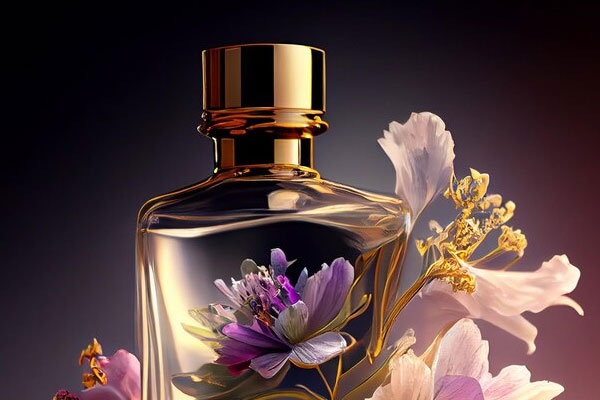
Best Perfume Brands for Men
Best Perfume Brands for Men : Exploring the Realm of Distinctive Fragrances
Welcome to the realm of men’s perfumes, where we venture beyond the well-known brands to discover fragrances that tell unique stories, encapsulated in each bottle. These perfumes are more than scents; they are experiences, offering a departure from the ordinary and a journey into unexplored olfactory territories.
For the discerning young man in search of novel fragrance experiences, here are five perfume brands that demand urgent exploration, each accompanied by its latest creation.
1. BDK Perfumes
Date of creation: 2016
Origin: France
Launched in 2016 by David Benedek, BDK Parfums is an independent creative perfumer’s house situated in the Palais Royal district in Paris. The brand’s creative process revolves around the meticulous selection of unique raw materials, drawing inspiration from the world of words and stories. All elements, from bottles to caps, labels, and boxes, are crafted entirely in France, showcasing the brand’s commitment to artisanal excellence.
The latest olfactory masterpiece, “Vanille Leather” from the “Exclusive Collection,” entices with top notes of pink berries, violet accord, and Indonesian patchouli. Base notes include Madagascar vanilla, oakwood, leather accord, iris, and resinoid benzoin, resulting in a captivating fragrance that embodies the perfect fusion of French tradition and olfactory modernity.
2. Maison Crivelli
Date of creation: 2018
Origin: France
Founded under the guidance of Thibaud Crivelli, Maison Crivelli stands out for its distinctive approach to luxury perfumery, embodying innovative creativity infused with modernity, contrast, and surprise. Fragrances are inspired by Thibaud’s travels and born from collaborations with renowned perfumers. The latest fragrance, “Oud Maracuja,” takes us on a sensory adventure, starting with a passion fruit tasting in the heart of isolated oud wood forests.
The remarkable contrast between the brightness of the fruit and the depth of the wood characterizes this exotic, woody, and fruity fragrance. Quality ingredients like saffron, Turkish rose absolute, leather, akigalawood, and others form an exceptional vegan blend.
3. Maison Francis Kurkjian
Date of creation: 2009
Origin: France
Francis Kurkdjian, known for creating the legendary perfume “Le Male” by Jean Paul Gaultier at the age of 24, founded Maison Francis Kurkdjian in collaboration with Marc Chaya in 2009. The Maison’s perfume collection blends the tradition of French perfumery with a contemporary vision, incorporating enchanting codes of purity, sophistication, timelessness, and audacity.
The latest creation, “Aqua Media Cologne Forte,” evokes water and light through vibrant notes of bergamot, verbena, sweet fennel, and a woody hedione-musk accord, representing balance in motion in a bottle that seamlessly combines elegance and modernity.
4. P. Frapin & Cie
Date of creation: 2004
Origin: France
P.Frapin & Cie, a French perfume brand under Maison Frapin, draws its origins from the tradition and excellence of the Frapin family, renowned producers of cognac since the 13th century. Positioned at the intersection of luxury and craftsmanship, the brand embodies French refinement by merging the art of perfumery with the prestigious heritage of cognac making. Each fragrance captures the essence of the Charentais terroir in elegant, timeless bottles.
The latest perfume is inspired by the unique process of the “Good Heating” of Cognac, a distillation that forges its character. With notes of twigs, dried roots, shavings, oak logs, Davana Oil, Black Pepper, Black Plum, Patchouli, Cedarwood, Benzoin, and Vetiver, it creates a warm and protective ambiance, offering an intense and enveloping olfactory experience.
5. Serge Lutens
Date of creation: 2000
Origin: France
Serge Lutens, a pioneer in the world of unisex perfumes, launched his own line in 2000 after collaborating with prestigious houses. His creations are known for their timeless and daring character. Serge Lutens believes in applying perfume directly to the skin, reflected in the aesthetics of table bottles he offers.
The latest perfume, “Écrin de Fumée,” combines notes of tobacco, cocoa, and rum. A poetic and sensual ode to the scent of tobacco, it pays tribute to individuals burning life at both ends. Belonging to the “Collection Noire,” this eau de parfum has been available since last April.
Conclusion – Best Perfume(s) for Men
In conclusion, these perfume brands offer a gateway to a world of olfactory delights that go beyond conventional boundaries. Each fragrance is a masterpiece, telling a unique story and offering a distinctive experience. As you embark on the journey of exploring these perfumes, you’ll discover the artistry, creativity, and dedication that define these independent and innovative fragrance houses.
The olfactory landscape awaits your exploration, inviting you to embrace the extraordinary and redefine your perception of smelling good. Share your thoughts and views in the comments below regarding best perfume brands for men – best perfume(s) for men.
Beauty
How to Identify Fake Perfumes and Cosmetic Products

How to Identify Fake Perfumes
How to Identify Fake Perfumes and Cosmetic Products : Let’s take a look
In a world where counterfeit goods and fake products thrive, distinguishing between genuine and imitation items has become increasingly challenging. This issue is particularly pronounced in the cosmetics and perfumes industry, where the allure of well-known brands attracts not only genuine consumers but also cunning counterfeiters.
With the proliferation of online marketplaces, the problem has escalated, making it crucial for consumers to learn how to recognize fake cosmetics and perfumes.
In this comprehensive guide, we will delve into the importance of using authentic products, the risks associated with counterfeit items, and practical steps to identify and avoid fake cosmetics and perfumes.
The Importance of Using Authentic Products:
Before delving into the ways to recognize fake cosmetics and perfumes, it’s essential to understand why using genuine products is crucial. While fake products may offer a cheaper alternative, knowingly purchasing counterfeit items is illegal. Legal ramifications aside, the primary concern lies in the uncertainty surrounding the ingredients used in counterfeit products.
Genuine cosmetics and perfumes from reputable brands undergo rigorous testing and approval processes to ensure consumer safety. These tests verify the authenticity of ingredients, providing consumers with confidence in the product they use. In contrast, fake products lack these guarantees, posing potential risks to the user’s skin and overall health.
Additionally, the testing of cosmetic products, especially in terms of animal cruelty, has become a significant ethical consideration for many consumers. Genuine cosmetic brands adhere to regulations and ethical standards, ensuring products are cruelty-free. By choosing authentic products, consumers contribute to the promotion of humane practices in the industry. Therefore, the quest for genuine products extends beyond legality to ethical and health considerations.
Identifying Fake Cosmetics and Perfumes:
Beware of Deals That Seem Too Good to Be True:
Deals that appear excessively cheap should raise a red flag. Most reputable cosmetic products maintain fixed prices, and significant discounts may indicate counterfeit products. Vigilance is crucial when encountering deals that deviate from the standard pricing.
Verify the Existence of “New” Products:
When encountering new products from favorite brands, it’s advisable to verify their existence. Counterfeiters may create inventive imitations of non-existent products, prompting consumers to exercise caution and verify the legitimacy of recently launched items.
Inspect Packaging Carefully:
Authentic cosmetic brands implement protective measures to counteract counterfeiting. Factory seals on packaging are common, and consumers should scrutinize them for any signs of tampering. Broken seals indicate potential alterations to the product, warranting further investigation.
Check Logos and Packaging Consistency:
Counterfeiters often attempt to evade legal consequences by slightly altering logos or packaging. Authentic products maintain consistency in logos and packaging details. Consumers should compare received products with online images to ensure accuracy.
Contact the Seller for Clarification:
If uncertainties persist, reaching out to the seller is a prudent step. Trusted online stores or department stores should readily respond to inquiries. When purchasing from individual sellers on online marketplaces, requesting a receipt or proof of purchase provides an additional layer of security.
Consider Language Discrepancies:
Some authentic cosmetic products may be sold at lower prices in different countries. Savvy traders import such products, offering consumers the chance to purchase at a reduced cost. While the packaging may feature a different language, transparency about this aspect ensures informed consumer choices.
Read Seller Reviews:
Prior to making a purchase, reading reviews about the seller can offer valuable insights. Consumers who have shared their experiences provide a firsthand account of the seller’s credibility. A high number of negative reviews, particularly regarding authenticity concerns, should prompt caution.
Request Receipts or Proof of Purchase:
When dealing with individual sellers, obtaining a receipt or proof of purchase enhances security. Genuine sellers should be willing to provide documentation that substantiates the authenticity of the product.
Conclusion:
Recognizing fake cosmetics and perfumes is a crucial skill in today’s market saturated with counterfeit goods. The importance of using authentic products extends beyond legal obligations to encompass health, ethics, and overall consumer safety. By understanding the risks associated with fake products and implementing practical steps to identify them, consumers can make informed choices that prioritize their well-being and ethical considerations.
Whether navigating online marketplaces or traditional stores, vigilance, research, and adherence to ethical standards contribute to a positive consumer experience. In the quest for genuine cosmetics and perfumes, consumers empower themselves to make choices aligned with both legal and ethical principles.
Beauty
Is Expensive Skincare Better? Costly Face Cream vs Cheap One
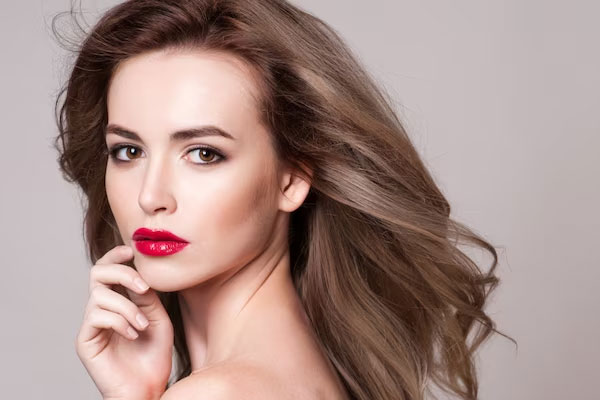
Is Expensive Skincare Better?
Do you the think that Is Expensive Skincare Better? Let’s explore the Value of Skincare
When it comes to skincare, the choices are vast, ranging from budget-friendly drugstore brands to luxurious high-end options. Often, consumers find themselves standing in front of shelves, contemplating whether an expensive day cream is truly superior to its more affordable counterpart.
In this discussion, we’ll delve into the factors that influence the price of skincare products and whether a higher cost guarantees better quality.
Understanding the Cost of Skincare:
The price of skincare products doesn’t solely reflect the cost of ingredients. In the realm of cosmetics, prominent brands allocate a significant portion of their budget to marketing. These brands invest heavily in advertisements, celebrity endorsements, and widespread visibility through various media channels. On the contrary, smaller brands may lack such extensive marketing resources.
Quality Perception:
One perspective suggests that smaller brands focus more on delivering a quality product, relying on positive word-of-mouth from satisfied customers. For them, a subpar product could severely impact sales. On the flip side, well-established brands may leverage their marketing prowess to compensate for potentially lower product quality.
Their elaborate packaging and effective advertising campaigns can mask any shortcomings.
Brand Reputation and Quality Assurance:
Reputable brands often have a vested interest in maintaining a high-quality standard. Their global reputation is on the line, and a product failure could be a significant blow to their business. Consequently, these brands are motivated to invest not only in marketing but also in extensive research to ensure their products meet customer expectations.
Personalized Skincare Choices:
The choice of skincare products is highly individualistic. There’s no one-size-fits-all solution, considering the diverse skincare needs of consumers. Whether you’re seeking an anti-wrinkle cream or aiming to reduce under-eye bags, there’s a plethora of products catering to specific concerns. It’s crucial to identify your unique requirements and experiment with different products to find what works best for you.
Factors Beyond Price:
Efficiency is just one aspect; other factors like production methods and testing practices are equally important. Many consumers prioritize cruelty-free products, avoiding those tested on animals. Certifications and logos indicating cruelty-free status provide assurance.
Additionally, the distinction between natural and chemical ingredients plays a role. Some individuals may opt for natural or organic versions, often pricier due to the intricacies of production.
Navigating the Skincare Market:
Finding the right skincare products involves navigating through a multitude of options. While advertisements and endorsements provide insights, it’s crucial not to solely rely on them. Consumer reviews and personal experiences shared online can offer valuable perspectives.
However, it’s essential to ensure that these reviews are unbiased and not influenced by brand endorsements.
Budget Considerations:
Skincare doesn’t have to break the bank. Regardless of your budget, there’s a diverse market offering products that cater to different financial constraints. It’s essential to strike a balance between cost and effectiveness, considering your financial capabilities while aiming for products that meet your skincare needs.
Conclusion:
In the vast landscape of skincare, the debate between expensive and affordable products persists. While big brands may invest heavily in marketing, smaller brands focus on delivering quality. Personal preferences, ethical considerations, and individual skin needs play pivotal roles in selecting the right products.
By exploring reviews, understanding ingredients, and being mindful of brand practices, consumers can make informed choices without overspending. The key is to find products that align with your skincare goals, budget, and ethical values.
-

 Travel9 months ago
Travel9 months agoBest Spinning Rod for Bass 2024
-
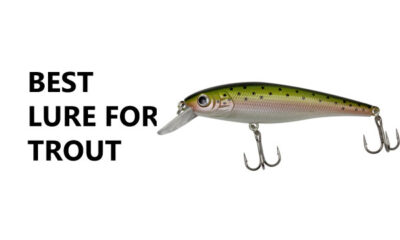
 Technology9 months ago
Technology9 months agoBest Lure for Trout 2024
-

 Travel9 months ago
Travel9 months agoBest Hunting and Fishing Clothing 2024
-

 Travel9 months ago
Travel9 months agoBest Robot Vacuum Cleaners 2024
-
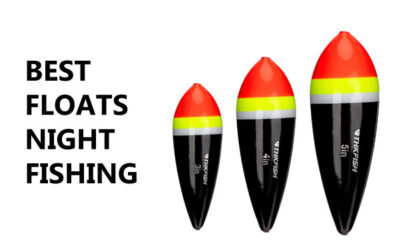
 Technology9 months ago
Technology9 months agoBest Floats for Night Fishing
-

 News6 months ago
News6 months agoValentine’s Deals
-
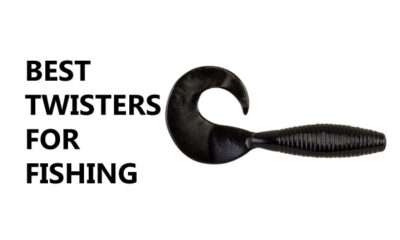
 Technology9 months ago
Technology9 months agoBest Twisters for Fishing 2024
-

 Travel9 months ago
Travel9 months agoBest Spinning Fishing Reels for Bass 2024










